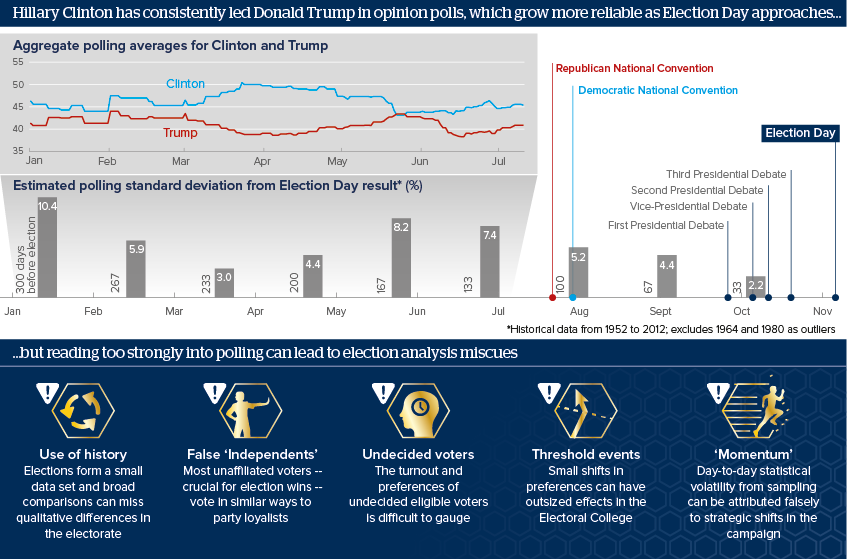US polling misuse will promote analytical overreach
High-profile predictive failures raise questions about Hillary Clinton's anticipated chances against Donald Trump

Source: Real Clear Politics, Princeton Election Consortium, Oxford Analytica
Outlook
The salient failure of most political analysts to predict Donald Trump's victory in the Republican presidential primaries and the United Kingdom's June 23 referendum vote in favour of leaving the EU highlight the misuse of polling data when constructing forward-looking political analysis.
In contrast to low-turnout primaries, first-past-the-post parliamentary elections or close 'yes/no' referenda, polling ahead of the November 8 US presidential election will prove of greater predictive value in most foreseeable circumstances.
Hyper-coverage of the US election by pollsters, robust state-level polling and a relatively predictable slate of decisive 'swing states' will diminish -- but not preclude -- the chances of a Brexit-style predictive failure come Election Day.
Impacts
- The more insular environments of congressional races are likely to see greater analytical overreach.
- Libertarian Gary Johnson will poll better due to voter frustration, but first-past-the-post electoral systems reward major parties.
- Support from primary challengers will prove of greater benefit to Clinton and Trump than the temporary post-convention polling bump.
- Aggregate polling will smooth the volatility of individual 'snapshot' polls.